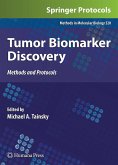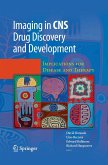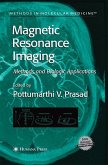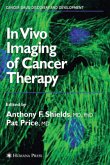Through a variety of mechanisms, cancer cells provide the biomarker material that can lead to their own detection, which then grants clinicians the opportunity for non-invasive body fluid and tissue analysis able to indicate the presence of tumors or the level of tumor burden. In Tumor Biomarker Discovery: Methods and Protocols, experts in the field present detailed chapters focused on the use and development of panels of biomarker analytes while covering subjects such as nucleic acids and protein-based technologies, metabolic profiling by analytic means or spectroscopy, as well as study designs for biomarker discovery and validation. Written in the highly successful Methods in Molecular Biology(TM) series format, chapters include brief introductions to the topics, lists of the necessary materials or reagents, step-by-step laboratory protocols, and notes on troubleshooting and avoiding known pitfalls.
Cutting-edge and authoritative, Tumor Biomarker Discovery: Methods and Protocols is an ideal guide to the technologies that can be used to discover and validate tumor biomarker panels suitable for the presymptomatic early detection of cancer.
Biomarkers are molecular indicators of a biological status and, as biochemical species, can be interrogated to evaluate disease status and therapeutic interventions. Biomarkers may be detectable in the blood, other body fluids, or tissues. The expectation is that the level of an informative biomarker is related to the specific type of disease present in the body. Hence, disease-relevant biomarkers can be used to measure the presence, progress, or intensity of disease. Through a variety of mechanisms, cancer cells provide the biomarker material for their own detection. Tumor biomarkers include cancer-specific mutations or changes in gene expression, both of which can result in aberrant protein expression. These variant or abundant proteins can be detectable in the circulation as the free proteins or as novel autoantibodies to those proteins, the latter indicating that the immune system can provide an exquisitely sensitive sensor of disease. Because cancer cells shed DNA in the circu- tion, an event rarely seen in healthy individuals, tumor-specific genetic changes, such as promoter methylation or gene mutations, are detectable in DNA prepared from plasma or other body fluids. Cancer-related biochemical changes often effect measurable me- bolic variations within a cell or organism. In addition, these biochemical changes result in posttranslational modification of proteins via glycosylation or phosphorylation providing a plethora of opportunity for biomarker discovery.
Cutting-edge and authoritative, Tumor Biomarker Discovery: Methods and Protocols is an ideal guide to the technologies that can be used to discover and validate tumor biomarker panels suitable for the presymptomatic early detection of cancer.
Biomarkers are molecular indicators of a biological status and, as biochemical species, can be interrogated to evaluate disease status and therapeutic interventions. Biomarkers may be detectable in the blood, other body fluids, or tissues. The expectation is that the level of an informative biomarker is related to the specific type of disease present in the body. Hence, disease-relevant biomarkers can be used to measure the presence, progress, or intensity of disease. Through a variety of mechanisms, cancer cells provide the biomarker material for their own detection. Tumor biomarkers include cancer-specific mutations or changes in gene expression, both of which can result in aberrant protein expression. These variant or abundant proteins can be detectable in the circulation as the free proteins or as novel autoantibodies to those proteins, the latter indicating that the immune system can provide an exquisitely sensitive sensor of disease. Because cancer cells shed DNA in the circu- tion, an event rarely seen in healthy individuals, tumor-specific genetic changes, such as promoter methylation or gene mutations, are detectable in DNA prepared from plasma or other body fluids. Cancer-related biochemical changes often effect measurable me- bolic variations within a cell or organism. In addition, these biochemical changes result in posttranslational modification of proteins via glycosylation or phosphorylation providing a plethora of opportunity for biomarker discovery.
From the reviews: "This well-illustrated book is an excellent resource on nucleic acid and protein-based technologies and metabolic profiling by analytic means or mass spectroscopy as well as for study designs for tumor biomarker discovery and validation. The audience includes both researchers interested in the identification and development of new tumor biomarkers and clinicians who need to be familiar with these new technologies in order to ... treat cancer patients. In addition to researchers and clinicians, students interested in tumor biomarkers will find this book extremely useful." (Omer Iqbal, Doody's Review Service, January, 2010)








